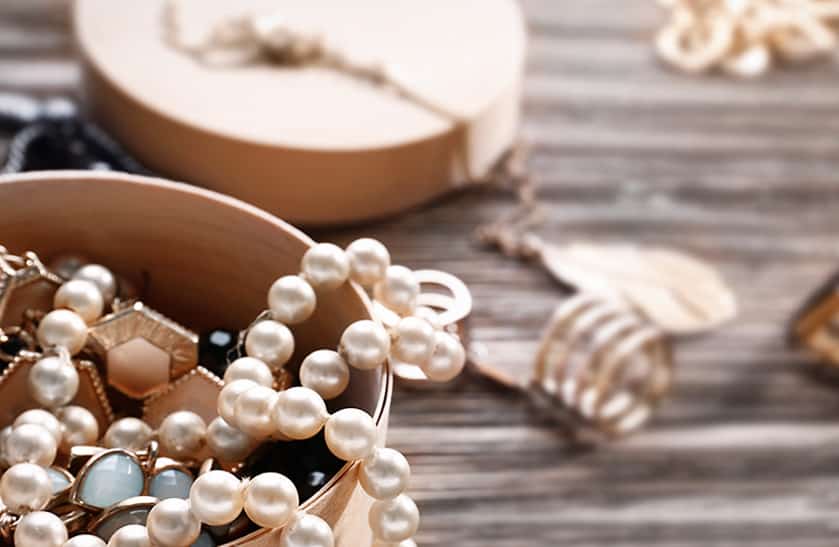
A properly-made gift is one that the law will uphold as valid when challenged.
“Thorough preparation must lead to success. Neglect nothing.”
Arthur Currie
Unlike real estate, movables (objects) often do not have a title deed indicating who the owner is. Any change of ownership arising from giving a movable away must therefore be purposeful and clear. Otherwise, when the donor is no longer around or able to attest to the gift, the recipient lies vulnerable to a challenge that the gift was not made.
What does it take to make a gift during your lifetime (an inter-vivos gift) properly?
It is not uncommon for a parent to give a watch, jewelry, art works or any object of sentimental or high value to one’s child. If the gift is not made properly, it can be challenged by the executor of the parent’s estate as belonging to the parent at the time of demise. If the executor’s challenge succeeds, the object will be distributed according to the contents of the Will or where there is none, according to the Intestate Succession Act.
In the High Court case of Teo Song Kheng v Teo Poh Hoon [2020] SGHC 47, a son found himself in such a position. The co-executor (his sister) of his mother’s estate claimed that pieces of jewelry in a safe deposit box, held jointly by the son and mother, was part of the mother’s estate. The son’s position was that his mother had gifted these to him.
The Judge reiterated how a valid gift can be made during one’s lifetime.
The son had to prove that these 3 elements were satisfied:-
The third element was fulfilled by virtue of the jewelry being kept in a safe deposit box that was jointly held by the mother-donor and the son. But the son failed to prove the first and second elements.
The second element was not proven, as the son could not identify the precise items that constituted the gift. In that box were many items; the jewelry that the children had gifted to their mother from time to time, gold items and the disputed items which were alleged by the son to have been gifted to him.
His mother had not segregated these items but had bundled everything in the box. Neither had she drawn up an inventory list. On the witness stand, the son admitted that some of the items in the box had not been gifted to him; eg. a Tag Heuer watch which had been held on trust for another. Hence the second element of certainty as to the subject matter of the gift was not fulfilled.
The son also failed to prove the first element of the mother’s subjective intention to make the gift. Because there was no documentation and the mother could not testify, having passed away, the burden of proving the mother’s intention to make the gift was an uphill task and one the son could not discharge.
The Court was called upon to rely on emails and documents, none of which were by the mother, and all of which were not contemporaneous with the making of the gift. Ultimately, the Court had nothing to go on other than the son’s testimony while he was on the witness stand. And the Court found this to be contradictory and unconvincing.
Not surprisingly, the Court held that the jewelry belonged to the mother’s estate. The gift had not been made.
While on the witness stand, the son at one point testified that his mother had said that the box would be his in future – it would not be his when she was alive.
This raised the possibility that the mother had not made the gift during her lifetime but had instead intended to have it made after her demise. This suggested that she had essentially made a verbal will (a nuncupative will). Such wills are invalid. Only Wills that are in writing and comply with the Wills Act are valid.
“Thorough preparation makes its own luck.”
Joe Poyer

Amita Dutt
Legal Consultant
RHTLaw Asia
amita.dutt@rhtlawasia.com
+65 6381 6900
Amita Dutt is a legal consultant and one of the founding members of RHTLaw Asia, with more than 30 years of experience within her practice area of Real Estate and Financial Services.

RHTLaw Asia is a member of ONERHT, an integrated network of multidisciplinary professional and specialist services which empowers stakeholders to achieve purposeful growth.
© 2024 RHTLaw Asia LLP. All Rights Reserved.
| Cookie | Duration | Description |
|---|---|---|
| cookielawinfo-checkbox-analytics | 11 months | This cookie is set by GDPR Cookie Consent plugin. The cookie is used to store the user consent for the cookies in the category "Analytics". |
| cookielawinfo-checkbox-functional | 11 months | The cookie is set by GDPR cookie consent to record the user consent for the cookies in the category "Functional". |
| cookielawinfo-checkbox-necessary | 11 months | This cookie is set by GDPR Cookie Consent plugin. The cookies is used to store the user consent for the cookies in the category "Necessary". |
| cookielawinfo-checkbox-others | 11 months | This cookie is set by GDPR Cookie Consent plugin. The cookie is used to store the user consent for the cookies in the category "Other. |
| cookielawinfo-checkbox-performance | 11 months | This cookie is set by GDPR Cookie Consent plugin. The cookie is used to store the user consent for the cookies in the category "Performance". |
| viewed_cookie_policy | 11 months | The cookie is set by the GDPR Cookie Consent plugin and is used to store whether or not user has consented to the use of cookies. It does not store any personal data. |